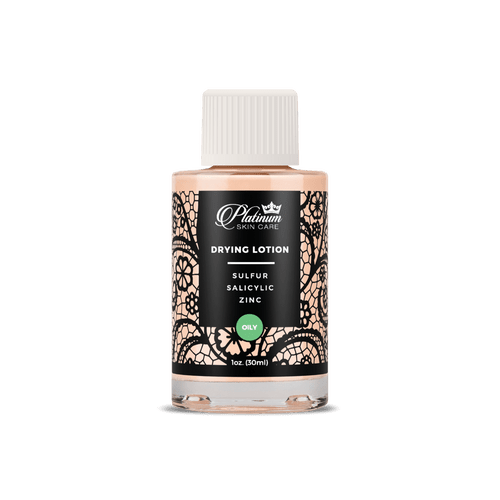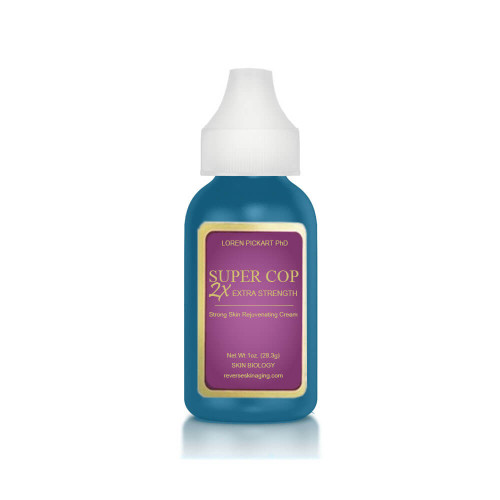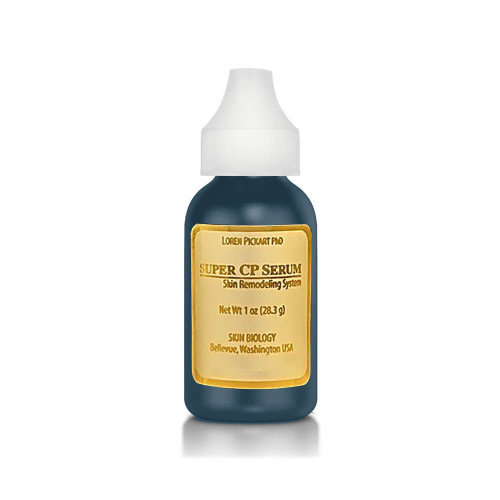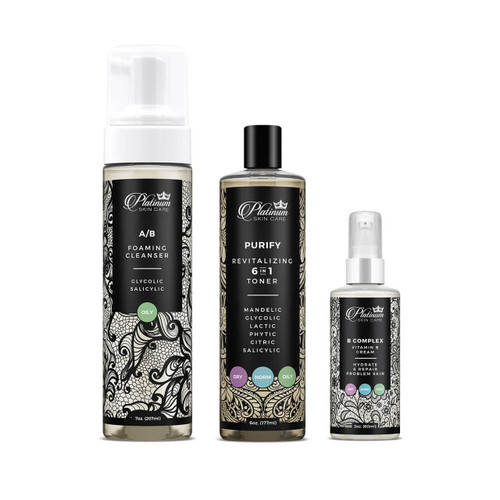
Acne-Prone Skin: Acne Skin Care Products
Understanding Acne
Common Causes of Acne
Acne isn't just a teenage dilemma; it's a skin condition that affects people of all ages. At its core, acne arises when hair follicles become clogged with oil and dead skin cells. Several factors contribute to this condition, including:
- Hormonal Changes: Fluctuations in hormones, particularly during puberty, pregnancy, and menstruation, can trigger increased oil production, leading to clogged pores.
- Diet: Studies suggest a link between certain foods, like processed foods and sugary drinks, and acne flare-ups.
- Stress: Stress can worsen acne by triggering the release of hormones that stimulate oil production.
- Certain Medications: Some medications, like birth control pills containing progesterone, can contribute to acne in some individuals.
Understanding thes triggers is the first step toward effective treatment, as it allows for targeted interventions that address the root causes of acne, not just its symptoms.
Different Types of Acne
Acne manifests in various forms, such as blackheads, whiteheads, papules, pustules, nodules, and cysts. Each type requires specific treatment approaches, and our range includes products designed to address these specific needs, ensuring comprehensive care for all types of acne.
How Acne Skincare Products Work
In the world of skincare, chemical peels and traditional acne remedies are famous champions. Acne skincare products work by targeting the underlying causes of acne. Ingredients like salicylic acid and benzoyl peroxide help to unclog pores and reduce inflammation, while retinoids promote skin cell turnover. Our products are formulated to deliver these benefits while being gentle on the skin, preventing further irritation and promoting healing.
Choosing the Right Acne Products
Selecting the right acne products can make a significant difference in your skincare routine. At Platinum Skincare, we offer a variety of options, ensuring you can find the perfect products for your specific needs.
Factors to Consider When Selecting Acne Treatments
When choosing acne treatments, consider your skin type, the severity of your acne, and any potential sensitivities to specific ingredients. It's essential to select products that not only treat acne but also maintain the overall health of your skin.
- Skin Type: Different skin types require different formulations. For instance, oily skin may benefit from products with salicylic acid or benzoyl peroxide to reduce oil and unclog pores. Dry skin, on the other hand, needs gentle, hydrating treatments that won’t strip away moisture.
- Severity of Acne: Mild acne might only require topical treatments, while moderate to severe acne could benefit from a combination of topical and oral medications or more intensive treatments like chemical peels.
- Ingredient Sensitivities: Be aware of any sensitivities or allergies to specific ingredients. It's crucial to choose products that your skin can tolerate to avoid further irritation or allergic reactions.
- Comedogenic Ratings: Pay attention to the comedogenic ratings of ingredients to avoid those that are likely to clog pores. Understanding which ingredients are comedogenic can help in selecting non-comedogenic products that are less likely to cause breakouts. Visit our Comedogenic Ratings page for more information.
Types of Acne Products Available
Our acne product range includes:
- Acne Peels: These treatments use chemical exfoliants to remove dead skin cells, unclog pores, and promote skin cell turnover. They are highly effective for reducing acne and improving skin texture.
- Acne Packages: These comprehensive kits contain a combination of products designed to work together for a complete acne treatment regimen. They offer a convenient solution for a structured skincare routine.
- Acne Treatments: From spot treatments to serums, our targeted acne treatments focus on reducing inflammation, killing acne-causing bacteria, and healing blemishes.
- Acne Cleansers: Cleansers formulated to remove excess oil, dirt, and makeup without stripping the skin’s natural moisture barrier. They prepare the skin for further treatments.
- Acne Toners: Toners help to balance the skin’s pH, tighten pores, and remove any residual impurities after cleansing, providing a clean slate for treatment products.
- Acne Scar Treatments: Specialized products designed to reduce the appearance of acne scars, promoting smoother and more even skin.
Ethical Skincare Choices
At Platinum Skincare, we are committed to ethical skincare practices. We are proud members of PETA, Leaping Bunny certified, and firmly against animal testing for the creation and exporting of our products. While not all our products are vegan, they are crafted with high-quality, cruelty-free ingredients that deliver outstanding results without compromising our ethical standards.
Effective Skincare Regimen for Acne-Prone Skin
An effective skincare regimen is crucial for managing acne and maintaining clear skin. At Platinum Skincare, we provide the essentials for a comprehensive routine.
Essential Components of an Acne Skincare Routine
A successful acne skincare routine includes cleansing, exfoliating, treating, and moisturizing. Each step plays a vital role in maintaining skin health and preventing breakouts. Our products are designed to integrate seamlessly into your daily routine, providing maximum benefits.
- Cleansing: Cleansing is the foundation of any acne skincare routine. It helps remove excess oil, dirt, and impurities from the skin's surface, preventing clogged pores. For best results, cleanse your face twice a day with a gentle, non-comedogenic cleanser that suits your skin type.
- Product Recommendation: Our Acne Cleansers are formulated to remove excess oil, dirt, and makeup without stripping the skin of its natural moisture. Ingredients like salicylic acid and glycolic acid help to unclog pores and prevent new breakouts, ensuring a fresh and clean complexion.
- Exfoliating: Exfoliating helps to remove dead skin cells that can clog pores and cause acne. Incorporate a chemical exfoliant, such as a beta hydroxy acid (BHA) or alpha hydroxy acid (AHA), into your routine to promote cell turnover and keep your pores clear.
- Product Recommendation: Our Acne Peels are designed to remove dead skin cells, unclog pores, and promote skin cell turnover, reducing acne and improving skin texture.
- Treating: Treating involves using targeted treatments to address active breakouts and prevent future ones. Look for products containing active ingredients like benzoyl peroxide, salicylic acid, or retinoids, which are proven to be effective in treating acne.
- Product Recommendation: Our Acne Treatments include spot treatments and serums that focus on reducing inflammation, killing acne-causing bacteria, and healing blemishes.
- Moisturizing: Moisturizing is essential, even for acne-prone skin. Use a lightweight, non-comedogenic moisturizer to keep your skin hydrated without clogging your pores.
- Product Recommendation: Our moisturizers are formulated to provide hydration without contributing to breakouts, ensuring your skin remains balanced and healthy.
- Sun Protection: Protecting your skin from UV damage is crucial, especially when using acne treatments that can increase sun sensitivity. Use a broad-spectrum sunscreen with at least SPF 30 every day.
- Product Recommendation: Incorporate a non-comedogenic sunscreen into your routine to shield your skin from harmful UV rays without causing breakouts.
Best Cleansers for Acne-Prone Skin
Choosing the right cleanser is fundamental for acne management. Our Acne Cleansers are specially formulated to remove excess oil, dirt, and makeup without stripping your skin of its natural moisture. Key ingredients like salicylic acid and glycolic acid help to unclog pores and prevent new breakouts, leaving your skin fresh and clean.
- Salicylic Acid Cleanser: Ideal for oily and acne-prone skin, this cleanser penetrates deep into the pores to dissolve oil and impurities.
- Glycolic Acid Cleanser: Suitable for all skin types, this cleanser exfoliates the skin's surface, promoting cell turnover and preventing clogged pores.
Understanding Blemishes and How to Treat Them
Blemishes can be stubborn, but with the right treatments, they can be effectively managed. Our spot treatments and serums target blemishes at their source, reducing inflammation and promoting faster healing. Consistent use of these products can significantly improve the appearance of your skin.
- Spot Treatments: Use spot treatments containing benzoyl peroxide or salicylic acid directly on blemishes to reduce inflammation and kill bacteria.
- Serums: Incorporate serums with active ingredients like retinoids or niacinamide to promote skin healing and reduce the appearance of blemishes.
Common Mistakes in Acne Management
Managing acne requires careful attention to skincare practices. Avoiding common mistakes can help prevent exacerbating the condition and promote clearer skin.
Skincare Practices that Worsen Acne
Certain skincare habits can worsen acne, such as over-washing, using harsh products, and neglecting to moisturize. Understanding these pitfalls and adopting healthier practices can make a significant difference in your skincare journey.
- Over-Washing the Skin
One of the most common mistakes in acne management is over-washing the skin. While keeping your face clean is important, washing too frequently can strip the skin of its natural oils. This can lead to increased oil production as your skin tries to compensate for the loss, ultimately causing more breakouts. Aim to cleanse your face no more than twice a day, and always use a gentle, non-comedogenic cleanser.
- Using Harsh Products
Using harsh products that contain strong detergents, alcohol, or high concentrations of active ingredients can irritate the skin and exacerbate acne. These products can cause dryness, redness, and peeling, making your skin more susceptible to breakouts. Instead, opt for products that are formulated for sensitive skin and contain soothing ingredients to help calm inflammation.
- Neglecting to Moisturize
Many people with acne-prone skin avoid moisturizers, fearing that they will make their skin oilier and cause more breakouts. However, skipping moisturizer can lead to dryness and irritation, which can trigger the skin to produce more oil. Choose a lightweight, non-comedogenic moisturizer to keep your skin hydrated without clogging your pores.
- Picking and Squeezing Pimples
It can be tempting to pick or squeeze pimples, but this can lead to further inflammation, scarring, and the spread of bacteria. This habit can make your acne worse and prolong the healing process. Instead, use targeted spot treatments to help reduce the size and redness of blemishes without causing additional damage to your skin.
- Changing Products Too Frequently
Switching skincare products too often can prevent you from seeing the true benefits of a treatment. It takes time for your skin to adjust to new products and for results to become visible. Stick with a consistent routine for at least 4-6 weeks before deciding whether to continue or try something new.
Identifying Factors that May Cause Acne Breakouts
Identifying and avoiding triggers such as certain foods, stress, and hormonal changes can help manage acne. Keeping a skincare journal can be beneficial in pinpointing these factors and adjusting your routine accordingly.
- Diet
What you eat can have a significant impact on your skin. Diets high in refined sugars, dairy, and processed foods have been linked to acne breakouts. Consider reducing your intake of these foods and incorporating more whole foods, fruits, and vegetables into your diet to help improve your skin's health.
- Stress
Stress can trigger the release of hormones that increase oil production, leading to breakouts. Finding ways to manage stress, such as through exercise, meditation, or hobbies, can help reduce the frequency and severity of acne flare-ups.
- Hormonal Changes
Hormonal fluctuations, such as those experienced during puberty, menstruation, pregnancy, and menopause, can contribute to acne. If you suspect that hormones are a significant factor in your breakouts, consult with a healthcare provider or dermatologist to explore potential treatments.
- Environmental Factors
Pollution, humidity, and exposure to harsh weather conditions can affect your skin and contribute to acne. Protect your skin by using gentle, non-comedogenic products, and cleanse your face thoroughly at the end of the day to remove any environmental impurities.
Impacts of Using Incorrect Skincare Products on Acne
Using the wrong products can lead to increased irritation and breakouts. It’s essential to select products formulated for acne-prone skin and avoid those with comedogenic ingredients that can clog pores. For more information on ingredients and their comedogenic ratings, check out our Comedogenic Ratings page.
- Comedogenic Ingredients
Comedogenic ingredients are substances that can clog pores and contribute to the formation of acne. Common comedogenic ingredients include certain oils, lanolin, and some types of silicones. Always check the ingredients list on your skincare products and avoid those with high comedogenic ratings.
- Product Formulation
Products that are too rich or heavy can exacerbate acne by creating an occlusive barrier on the skin, trapping oil and bacteria. Opt for lightweight, non-comedogenic formulations that allow your skin to breathe while providing necessary hydration and treatment.
- Incompatibility with Skin Type
Using products that are not suitable for your skin type can lead to imbalances and breakouts. For example, oily skin types may need oil-controlling products, while dry skin types require more hydration. Choose products specifically formulated for your skin type to ensure optimal results.
- Overuse of Active Ingredients
While active ingredients like salicylic acid, benzoyl peroxide, and retinoids are effective in treating acne, overusing them can cause irritation and dryness. Follow the recommended usage instructions and avoid layering multiple active ingredients without guidance from a dermatologist.
A Clearer Path Forward
Achieving clear, healthy skin is possible with the right products and knowledge. At Platinum Skincare, we are committed to providing high-quality acne treatments that cater to all skin types and severities. Explore our comprehensive range and take the first step towards a blemish-free complexion today. For inspiration and insights, read How Our CEO Cured Her Acne.














